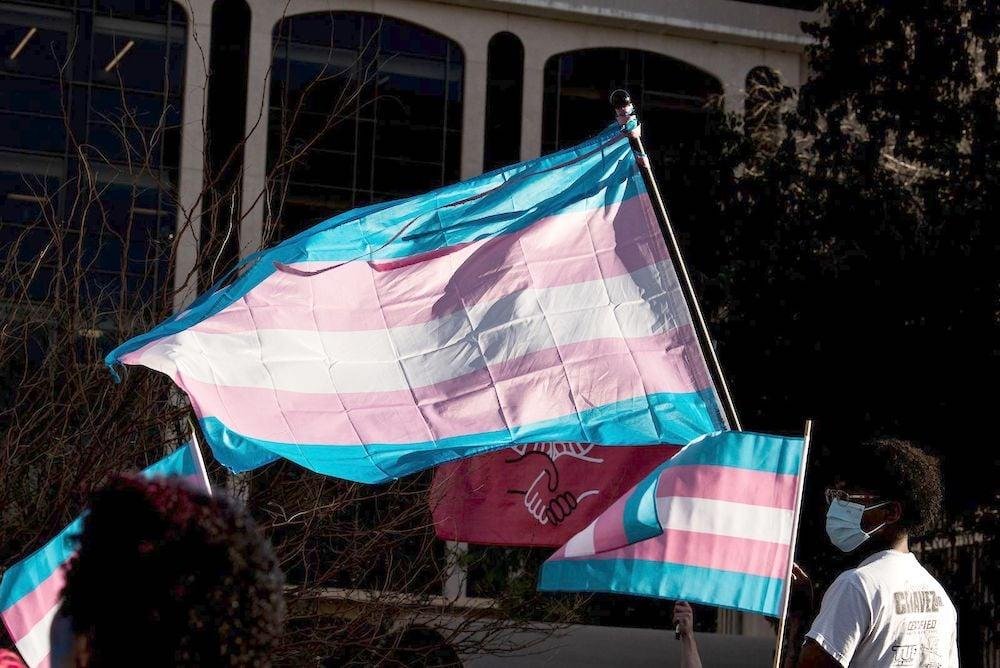Business
Anti-Trans Laws Threaten Ballot Access for Transgender Voters

In Kansas, the American Civil Liberties Union (ACLU) has sent a letter reminding election officials that the gender marker on voter ID does not need to match an individual’s gender expression. This initiative is part of a broader effort to support transgender Americans in navigating complex identification requirements ahead of the November elections.
Across eight battleground states, VoteRiders is actively assisting voters in obtaining appropriate identification that reflects their gender identity. Meanwhile, Equality Florida, a prominent LGBTQ+ advocacy organization, is conducting training sessions to empower voters amid recent regulations that hinder many transgender individuals from acquiring photo IDs that align with their gender.
As Republican leaders intensify their anti-transgender rhetoric before a significant election, many transgender and nonbinary Americans face stringent new laws impacting their ability to obtain vital documentation like birth certificates and driver’s licenses aligned with their identities. This situation has sparked confusion and fear among transgender voters, potentially discouraging their participation in elections.
Lauren Kunis, CEO of VoteRiders, noted, “There is a chilling effect. The environment for trans individuals is unsafe and intimidating, particularly when it comes to voting.” Advocates warn that the implications of these regulations may even extend to cisgender individuals, particularly women and women of color, in a system increasingly dependent on temporary election workers responsible for enforcing diverse policies.
The existing laws often narrowly define sex by birth anatomy, part of a larger trend of anti-trans legislation gaining traction in Republican-led states. The Movement Advancement Project (MAP) reports that in the past two years, at least nine states have implemented regulations directly addressing gender.
Moreover, actions taken by authorities in states like Florida and Texas further complicate matters. For instance, a Florida agency has barred the updating of gender markers on driver’s licenses for transgender individuals, while Nebraska’s governor issued an executive order impacting similar identities last year.
The rhetoric surrounding these issues isn’t confined to legislative actions. The Republican National Convention highlighted anti-transgender sentiment, with former President Trump attacking transgender identities directly during his campaign rhetoric. Trump’s comments have raised alarms within a community that actively participates in electoral processes. According to the 2022 U.S. Transgender Survey, voting-eligible transgender individuals cast their ballots at higher rates than the general population.
“Trans votes count,” stated Ankit Rastogi of the National Center for Transgender Equality, emphasizing the community’s commitment to civic engagement. The recent surge in laws targeting identification, such as driver’s licenses, has raised significant barriers for many. Forcing individuals to present IDs that mismatch their gender identity can lead to discrimination and public scrutiny.
Hazel Krebs, a transgender woman from Kansas, shared her concerns. While she managed to vote in the recent election, she worries about how others might fare in similar circumstances. “It is almost certainly stopping some people from showing up at the polls,” Krebs noted, illustrating the anxiety surrounding these new regulations. Advocates continue to work with election officials to prepare them to accommodate transgender voters effectively.
The larger geopolitical landscape shows that anti-voter laws often emerge in tandem with anti-transgender policies, presenting complex challenges to civic participation. States require identification for voting, with many instituting new or stricter laws since 2020. Approximately 21 million voting-eligible American citizens lack a valid driver’s license, disproportionately impacting Black and Hispanic communities.
With the upcoming elections, uncertainty looms over how many transgender individuals will face difficulties in voting due to these new identification requirements. Advocates emphasize the necessity of identifying multiple forms of ID and creating resources to accommodate marginalized voters. The inconsistencies and ambiguities of the new regulations create challenges not just for transgender individuals but for all voters in states where legal constraints are tightening randomly.
Despite the increasing hostility, Krebs expresses determination: “Nothing these laws will do can stop me from living my best life.” As advocates mobilize to ensure transgender voices are heard, the battle for equitable access to voting continues in a climate fraught with challenges.


















